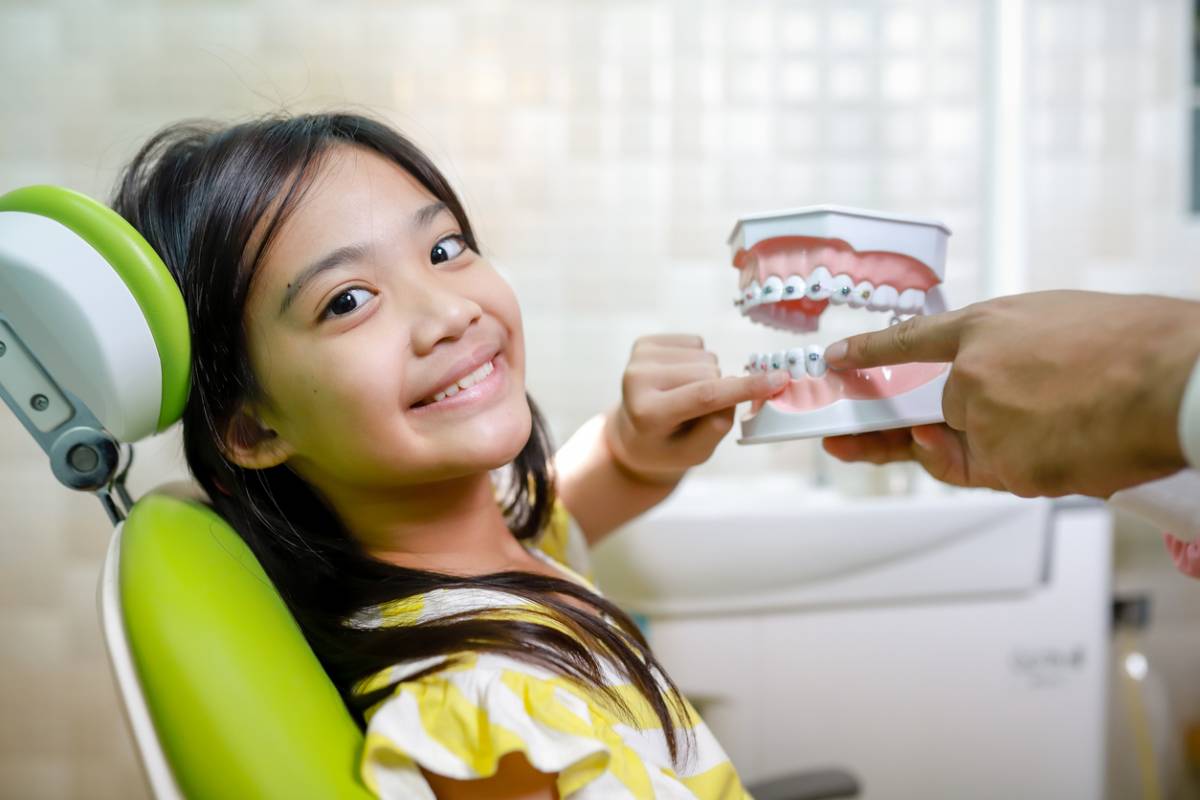Dental trauma is any type of injury that occurs in the mouth. Unfortunately, kids often have dental injuries as they constantly move, run, play, and eventually fall. Also, there is a fair number of possible sports-related dental injuries. Here, we made a list of some of the most common dental injuries in kids.
Common Dental Injuries in Kids
Younger kids have primary teeth that are going to be replaced with permanent ones later. The treatment of dental injuries can vary depending on the type of tooth that is injured. Primary teeth injuries can be treated slightly differently compared to permanent teeth injuries.
Broken or Chipped Primary Teeth
Even though primary teeth will be substituted with permanent ones later on in life, it does not mean that a broken primary tooth does not need to be properly treated. Some injuries involving broken teeth can also involve damage to the nerves, gums, blood vessels, or jaw bone. These complications might not be noticeable right away with the naked eye, which is why it is important to visit a dentist as soon as possible.
Also, a broken tooth can have sharp edges and might damage surrounding tissue in the mouth if left untreated. In some cases, it is possible to smooth the tooth edges or to fully restore it with special dental raisin material. This way, the tooth will serve your child up until it is time for it to fall out naturally. In other cases, tooth extraction is the best course of action. An experienced dentist can determine which option is optimal in your particular situation.
Broken or Chipped Permanent Teeth
Treatment of permanent broken teeth might include several procedures depending on the severity of the case:
- If the broken fragment is still accessible, it could be attached back to the tooth
- Sometimes a crown is used to cover the broken tooth
- A filling material can be used to restore the broken tooth
- If the nerves of a broken tooth are exposed, a root canal treatment might be needed
Dislodged or Loose Primary Tooth
If the teeth are impacted with enough force, they can get dislodged or loose. Most commonly, this happens to the front teeth if a child falls or gets bumped in the face by some objects. In some cases, a loose tooth can heal on its own. But sometimes, there can be a risk of a loose tooth falling out. It might be dangerous because there is a risk of a child choking. A dentist can determine if the situation calls for an extraction in order to prevent accidents, or if it is safe to keep the tooth and to let it heal. Also, sometimes a loose tooth can negatively impact the bite. In such cases, it is usually removed.
Dislodged or Loose Permanent Tooth
The symptoms of a dislodged tooth include:
- Pain or tenderness
- Bleeding around the gums
- Metallic sound when the tooth is tapped
If a permanent tooth gets dislocated or loose, it is considered to be a more serious trauma that calls for immediate treatment. In most cases, the tooth can be put back to its proper position in the socket. Stitches or dental splints can be used to keep the tooth in place until it heals all the way.
Knocked-out Primary Tooth
If the primary tooth is knocked out (completely dislodged from the socket), a dentist should make sure that there is no damage to the jaw bone, blood vessels, nerves, or gums. That is why, even though the tooth would eventually fall out on its own anyway, it is necessary to check in with a professional if it has been knocked out.
Knocked-out Permanent Tooth
If a permanent tooth is knocked out, it is an emergency that requires immediate treatment. It is best to try reinserting the tooth into its place right away. Ideally, the knock-out tooth should be treated within 30 to 60 minutes, then it has the best chance of surviving.
Keep the knocked-out tooth in milk or saline solution until you get to the dental office. The tooth might be reattached and can fully heal if not too much time has passed since it has been knocked out.
Broken or Dislocated Jaw
Other dental-related injuries can happen not to the teeth but to the jaw. Both a dislocated and broken jaw require immediate treatment by a specialist, as they are considered serious traumas.
The symptoms of a dislocated jaw include:
- Acute pain
- A child can not close their mouth
- Upper and lower teeth do not meet in a usual position
- The jaw appears lopsided
It is best if a specialist can treat the dislocated jaw right away. Then manual treatment (putting the jaw back into place) is more likely to succeed. If the treatment is delayed, a surgical operation might be necessary.
The symptoms of a broken jaw can look like:
- A child can not close their mouth
- Bleeding from the nose or mouth
- A child’s jaw or cheek is swollen or bruised
- A child has difficulty breathing
- Pain in ears
- A child’s face feels numb
Depending on the severity of the fracture, there are usually two ways to treat a broken jaw. If the fracture is mild, a liquid diet and rest can be prescribed for about 6 weeks. If the fracture is more severe, a surgery might be necessary. Sometimes, special metal plates or bars are used to hold the jaw bone in place so it can properly heal.
It can be challenging to prevent a child from having a dental injury. If the situation occurs, do not postpone a visit to a dental specialist. Sign up for an appointment with a kids dentist in Rialto and have your child preserve a healthy and beautiful smile.


